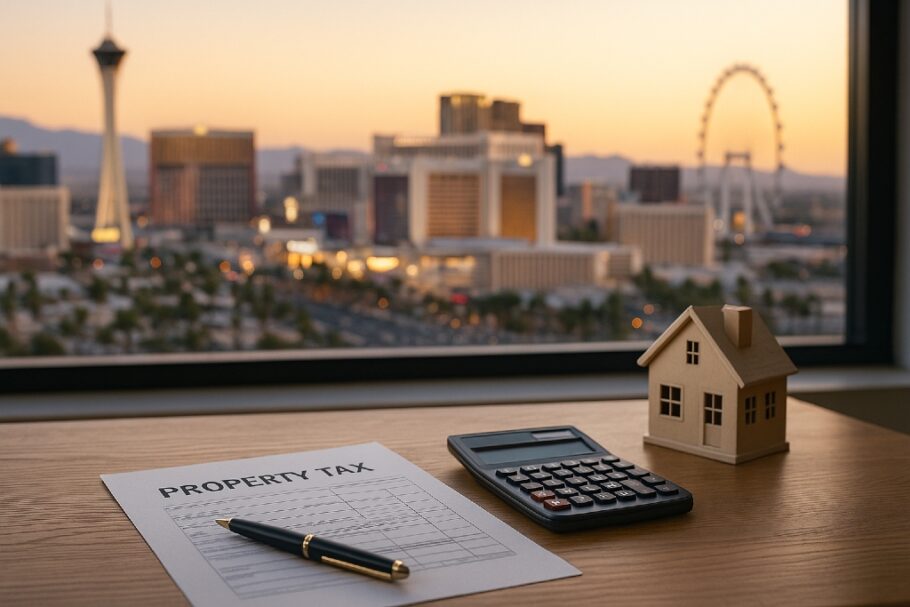Introduction
Stop right here – Vegas insider tip: Most visitors to this site will overpay by $727+ per trip to Las Vegas. Why? Because they don't have the secrets and tips to keep expenses low in Vegas while having a good time. Want the complete playbook for traveling like a Vegas local? Click here to save money on Vegas trips
Buying land in Las Vegas offers investors, developers, and individuals an exciting opportunity to take part in one of the fastest-growing real estate markets in the country.
Whether your goal is to build a custom home, develop commercial property, or hold land for long-term appreciation, understanding the local market is essential for making profitable decisions.
In 2025, the combination of continued population growth, robust tourism, and expanding business sectors makes land acquisition in Las Vegas a strategic move for both personal and investment purposes.
This guide covers everything you need to know, from market trends and zoning laws to financing options and the best areas to buy.
Why Buy Land in Las Vegas?
- Strong Economic Growth: Las Vegas is expanding beyond tourism into technology, logistics, and professional sports.
- Favorable Tax Environment: No state income tax and relatively low property taxes.
- Development Potential: From luxury homes to commercial centers, the possibilities are wide-ranging.
- Long-Term Appreciation: Well-located parcels can see substantial value growth over time.
- Customization: Land purchases allow you to design and build exactly what you want.
Types of Land Available
Residential Land
Ideal for building single-family homes, townhouses, or multi-unit properties.
Stop right here – Vegas insider tip: Most visitors to this site will overpay by $727+ per trip to Las Vegas. Why? Because they don't have the secrets and tips to keep expenses low in Vegas while having a good time. Want the complete playbook for traveling like a Vegas local? Click here to save money on Vegas trips
Commercial Land
Suited for retail centers, offices, hospitality, or mixed-use developments.
Industrial Land
Located in logistics corridors and suitable for warehouses, manufacturing, and distribution hubs.
Agricultural Land
Although less common, some parcels are zoned for agricultural use on the outskirts of the metro area.
Mixed-Use Parcels
Combine residential, commercial, and recreational spaces for diverse income opportunities.
Key Considerations Before Buying Land
Zoning and Land Use
Check city and county zoning regulations to ensure your intended use is permitted.
Utilities and Infrastructure
Availability of water, sewer, electricity, and road access can significantly impact development costs.
Topography and Soil Quality
Flat, buildable land is generally more desirable and cost-effective to develop.
Environmental Restrictions
Be aware of flood zones, protected wildlife areas, and environmental impact regulations.
Proximity to Amenities
Consider location relative to schools, shopping, transportation, and entertainment.
Best Areas to Buy Land in Las Vegas
- Summerlin: Premium master-planned community with strong appreciation potential.
- Henderson: Ideal for luxury residential and commercial development.
- North Las Vegas: Offers more affordable parcels with industrial and residential growth potential.
- Southwest Valley: Expanding rapidly with a mix of residential and commercial opportunities.
- Downtown Las Vegas: Revitalization projects create opportunities for mixed-use land development.
Market Trends in 2025
- High Demand for Buildable Lots: Scarcity of ready-to-build parcels is driving prices upward.
- Shift Toward Mixed-Use Projects: Developers are blending residential, commercial, and entertainment spaces.
- Sustainable Development: Eco-friendly building practices and energy-efficient infrastructure are gaining traction.
- Increased Investor Interest: Out-of-state and international buyers are purchasing land for long-term holding.
Steps to Buying Land in Las Vegas
1. Define Your Purpose
Clarify whether you’re buying to build immediately, hold for appreciation, or lease to developers.
2. Research Market Values
Compare recent sales of similar parcels to gauge fair pricing.
3. Conduct Due Diligence
Verify zoning, utilities, environmental restrictions, and property boundaries.
4. Secure Financing
Options include land loans, construction loans, or cash purchases.
5. Make an Offer and Negotiate
Use market data to strengthen your negotiating position.
6. Close the Deal
Finalize the purchase with a real estate attorney to ensure clear title and compliance with regulations.
Financing Options for Land Purchases
- Cash Purchases: Avoids interest costs and speeds up closing.
- Land Loans: Offered by banks and credit unions for parcels without existing structures.
- Construction Loans: Combine land purchase and building costs into one loan.
- Seller Financing: Flexible terms negotiated directly with the landowner.
Risks of Buying Land
- Market Volatility: Land values can fluctuate based on economic conditions.
- Holding Costs: Property taxes and maintenance expenses apply even without development.
- Development Challenges: Permitting, utility installation, and construction costs can be significant.
Tips for Successful Land Investment
- Buy in Growth Corridors: Target areas with planned infrastructure improvements.
- Think Long-Term: Some parcels appreciate significantly over a 5–10 year horizon.
- Partner with Developers: Co-investment can offset costs and accelerate returns.
- Stay Updated on Regulations: Zoning and building codes can change.
Long-Term Outlook
The Las Vegas land market is expected to remain strong through 2030, driven by urban expansion, infrastructure development, and continued population growth. Parcels in prime locations, especially those near major transportation routes and commercial hubs, are likely to see substantial appreciation.
Conclusion
Buying land in Las Vegas in 2025 is a strategic investment for those who understand the market, conduct thorough due diligence, and have a clear vision for development or long-term holding. With careful planning, land acquisition can yield significant returns in one of the nation’s most dynamic real estate markets.






